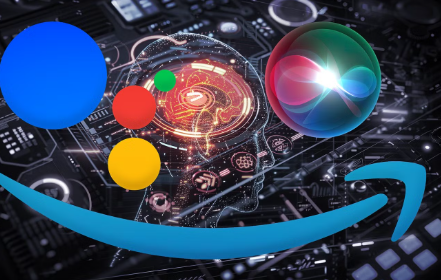How AI Is Powering Virtual Assistants Like Siri and Alexa
AI is significantly enhancing the capabilities of virtual assistants such as Siri and Alexa. Through advanced natural language processing and machine learning, these assistants can better understand user intent and provide personalized responses. This evolution not only improves interaction quality but also integrates seamlessly with smart home technologies. As these systems continue to develop, the potential for more sophisticated functionalities raises intriguing questions about their future roles in daily life.
The Role of Natural Language Processing in Virtual Assistants
As virtual assistants increasingly become integral to daily life, the role of Natural Language Processing (NLP) emerges as a critical component in their functionality.
Speech recognition enables these systems to convert spoken language into text, while context understanding allows them to interpret user intent accurately.
This synergy enhances communication, empowering users to interact freely and efficiently with their virtual companions, enhancing overall user experience.
Read more: The Importance of Digital Literacy in the Modern World
Machine Learning Algorithms Enhancing User Experience
While users interact with virtual assistants, machine learning algorithms play a pivotal role in refining and personalizing their experiences.
By leveraging user personalization and predictive analytics, these algorithms analyze past interactions, tailoring responses and suggestions to individual preferences.
This continuous learning process enhances engagement, making virtual assistants not only more efficient but also more aligned with users’ unique needs and desires.
Integrating Smart Home Technology With AI
Integrating smart home technology with AI revolutionizes how users interact with their living environments, creating seamless ecosystems that enhance daily life.
Through smart home integration, devices communicate effortlessly, allowing users to control lighting, temperature, and security systems with simple voice command control.
This synergy empowers individuals, granting them greater autonomy and convenience while optimizing energy efficiency and elevating overall comfort within their homes.
The Future of Virtual Assistants and AI Development
The evolution of virtual assistants is poised to reshape the landscape of artificial intelligence, as advancements in natural language processing and machine learning pave the way for more intuitive and responsive interactions.
Future developments will emphasize personalized interactions, enabling systems to cater to individual preferences.
However, ethical considerations surrounding data privacy and algorithmic bias will be crucial in guiding responsible AI advancements in this domain.
Conclusion
As the saying goes, “The whole is greater than the sum of its parts.” In the realm of virtual assistants, the synergy of natural language processing, machine learning, and smart home integration exemplifies this adage. Together, these technologies are not only enhancing user interactions but also reshaping the way individuals engage with their environments. As AI continues to evolve, virtual assistants like Siri and Alexa will become increasingly indispensable, driving efficiency and personalization in everyday life.




